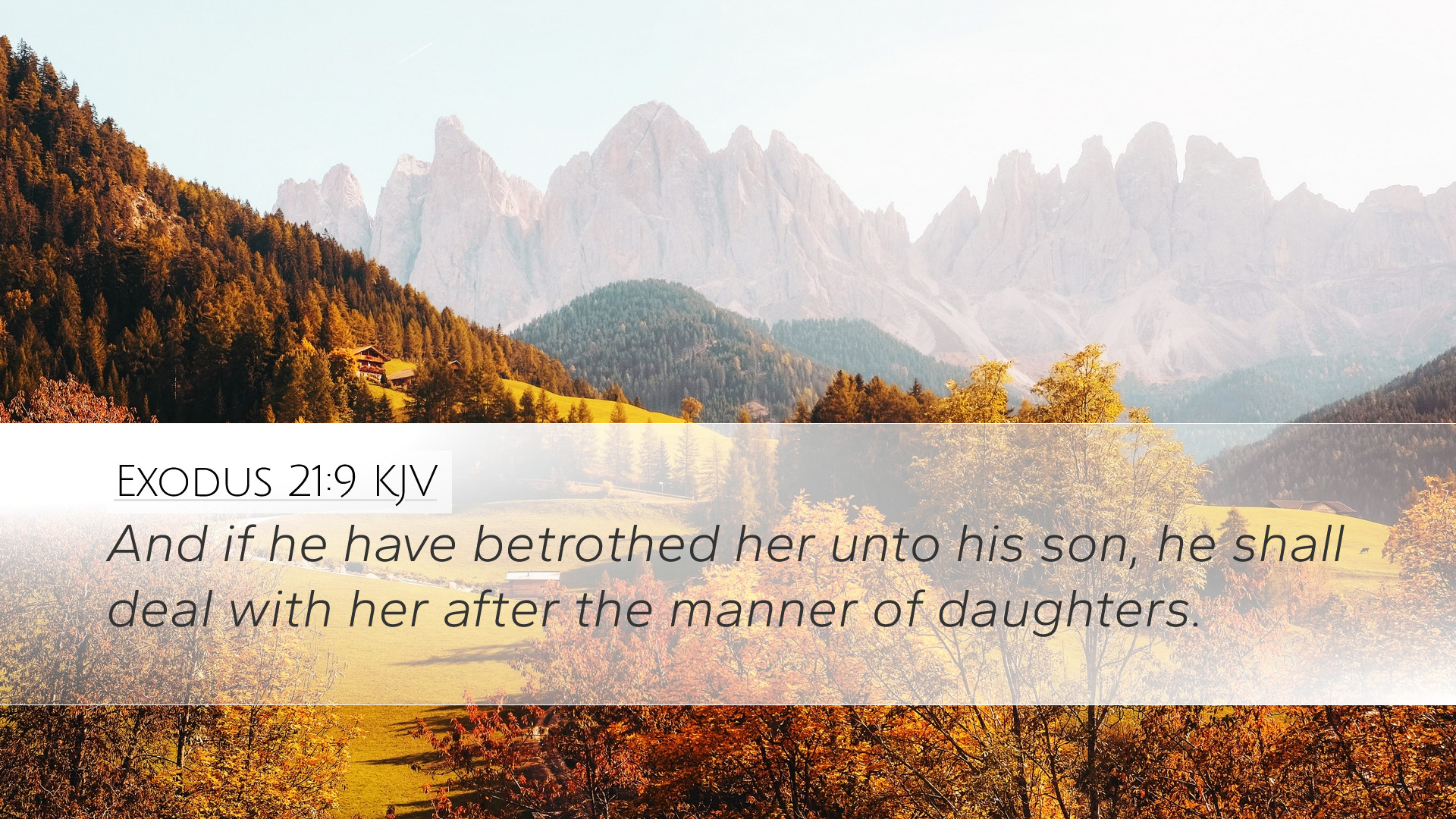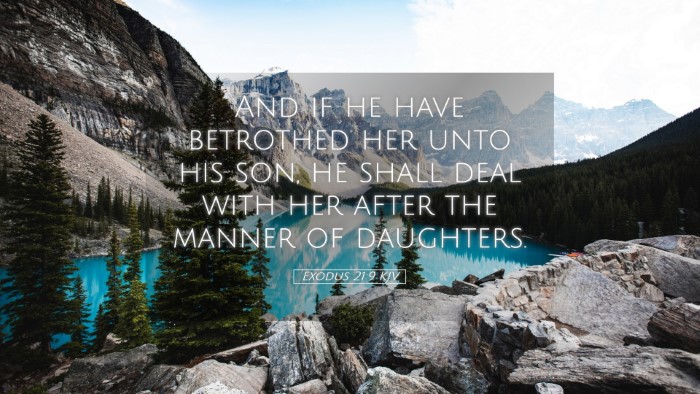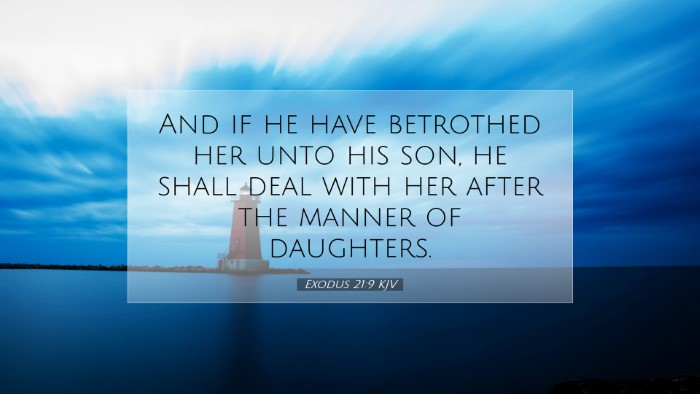Exodus 21:9 Commentary
Exodus 21:9 states:
"And if he have betrothed her unto his son, he shall deal with her after the manner of daughters."
This verse forms part of the legal regulations given to the Israelites, addressing the treatment of women within the patriarchal framework of ancient Hebrew society. Here we will explore the commentary and insights from various public domain sources, including those of Matthew Henry, Albert Barnes, and Adam Clarke.
Overview of Context
This verse is situated within a larger passage that deals with slave laws and the responsibility of individuals towards their bondsmen. The laws presented in Exodus 21 highlight God's concern for justice and the humane treatment of individuals, particularly those in vulnerable positions, including women. The regulations regarding betrothal and marriage underscore a profound respect for familial roles and relationships.
Meaning and Interpretation
Matthew Henry's Commentary:
Matthew Henry emphasizes that this verse illustrates the honorable position of a woman who has been betrothed. Betrothal ties a man and woman in a sacred relationship before actual marriage. Henry notes that this verse mandates that the man must treat the betrothed woman with all the responsibility and respect due to his own daughters. Thus, it reflects not only the legal rights afforded to women but also the ethical obligations of men.
Albert Barnes' Notes:
Barnes focuses on the implications of this verse within the household or family dynamics of ancient Israel. He interprets the phrase “deal with her after the manner of daughters” as a call to provide for and protect the woman, just as one would a family member. The betrothed woman is not merely a piece of property but an integral part of the family structure, deserving of kindness and care. This relational treatment reinforces the sanctity of marriage and the betrothal process.
Adam Clarke's Commentary:
Adam Clarke provides a historical context, explaining that in ancient times, the engagement period (betrothal) was a serious commitment, akin to marriage. He argues that the laws surrounding betrothal were designed to protect women from exploitation and to ensure that they were treated with dignity. Clarke underscores the idea that any man who betrothed a woman should bear in mind his duties to her, reflecting a culture where women were often at risk of being marginalized. His interpretation highlights that these laws were progressive for the era.
Theological Implications
This verse offers significant theological insights relevant to modern readers, especially pastors and theologians:
- Commitment in Relationships: The betrothal emphasizes the importance of commitment and fidelity, principles that are vital in contemporary discussions of relationships and marriage.
- Protection and Care: The command to treat a betrothed woman with respect aligns with the biblical principle of caring for the weak and vulnerable, which resonates with Jesus' teachings on love and service.
- Legacy of Family: This directive reinforces the sanctity of family and the roles that individuals play within familial relationships, calling modern readers to reflect on their responsibilities toward others within their families.
Practical Applications
For pastors and students of the Bible, this verse can be a springboard for discussing several important themes:
- Women's Rights: The interpretation of this verse can foster conversations around gender equality and the protection of women's rights, both in Biblical times and today.
- Ethical Leadership: Leaders can be encouraged to model their responsibilities after this principle, treating all members of the congregation or community with dignity and respect.
- Family Dynamics: The importance of healthy family relationships can be emphasized, highlighting the need for love, respect, and care in modern households as rooted in Biblical values.
Conclusion
Exodus 21:9 is a testament to God's justice and compassion, revealing His desire for people to engage in relationships characterized by respect and care. The insights derived from public domain commentaries shed light on the ethical imperatives set forth by this verse, serving as a guide for contemporary readers in their personal and communal lives. Through understanding the historical and cultural context, it becomes evident that this scripture calls for an expression of love that reflects God's own character.


